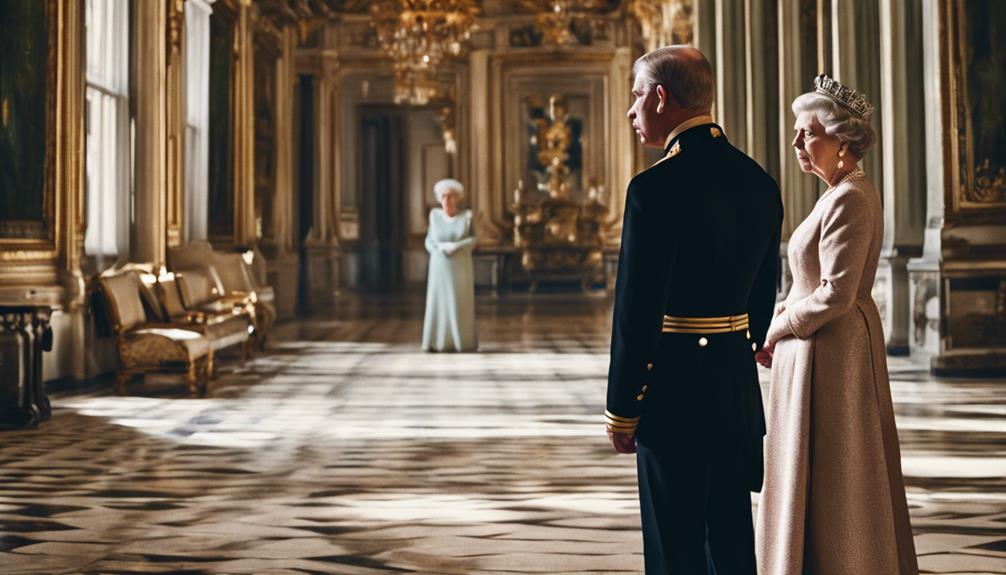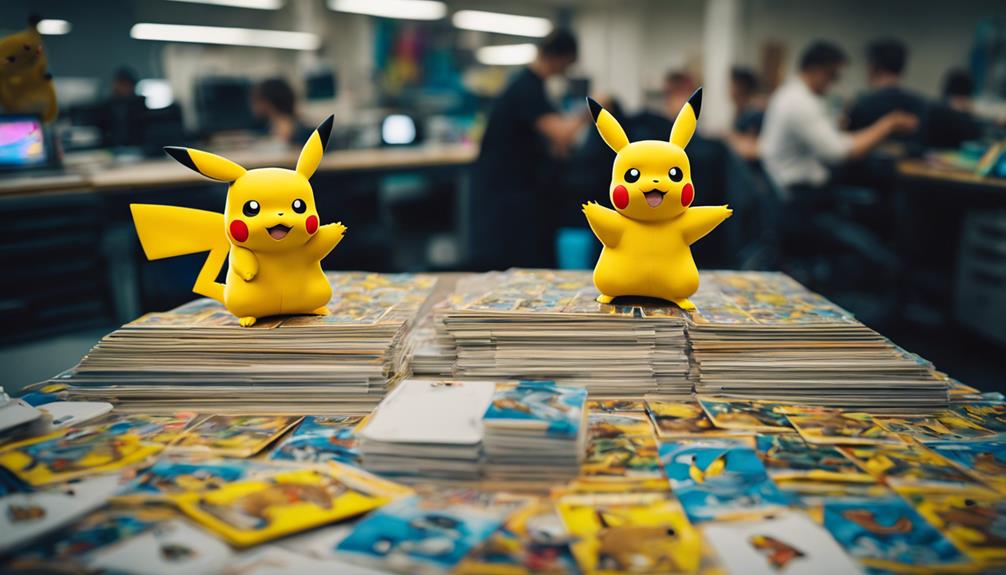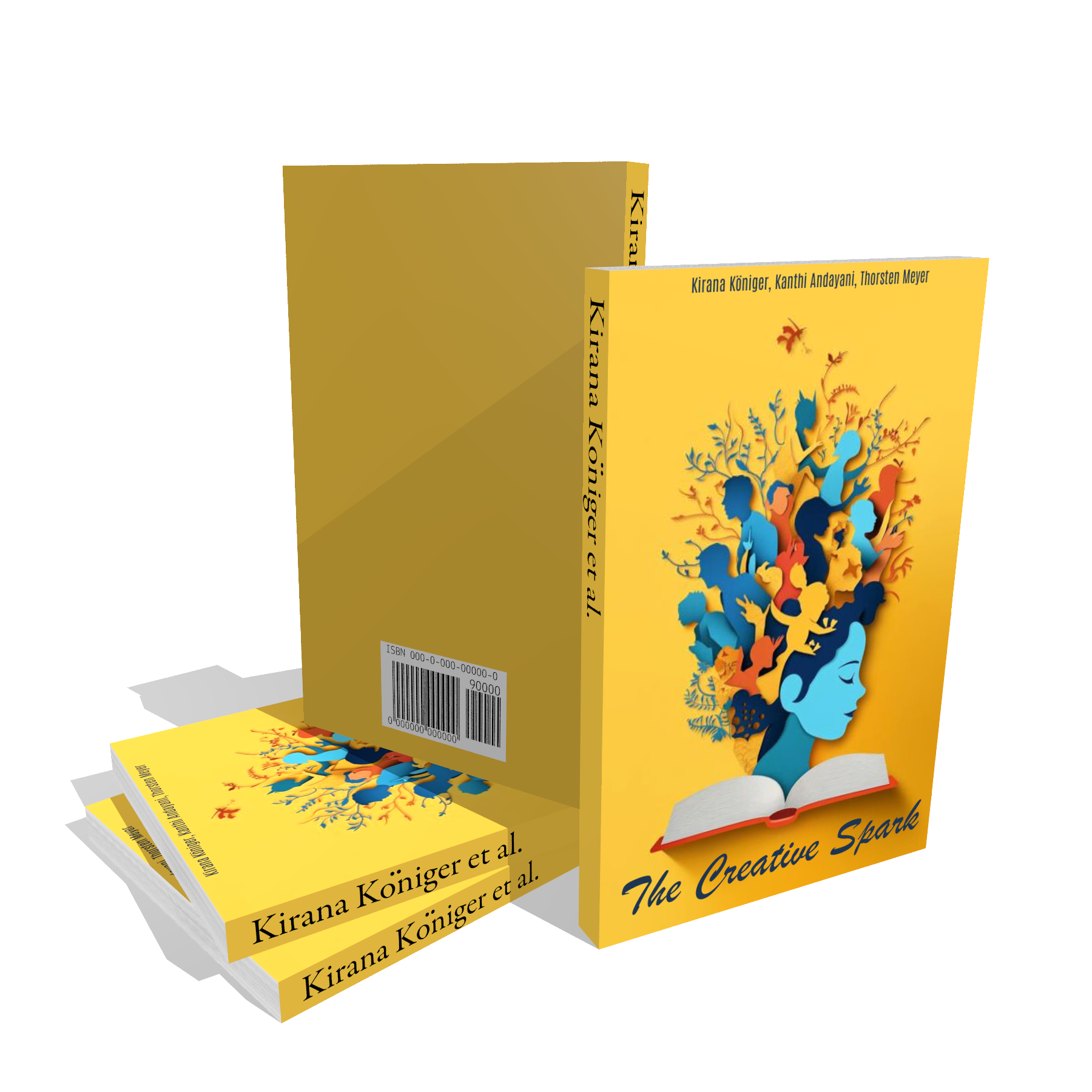In the eye of the public, Prince Andrew is alleged to be the Queen's favorite son due to their close relationship marked by shared laughter and deep connections. The Queen values Andrew's candid nature and sense of humor, contributing to their special bond. Despite recent controversies and scandal, Andrew's charisma, wit, and endearing personality traits continue to be admired. The fallout from the Epstein scandal has greatly tarnished his public image, leading to legal battles, resignation from royal duties, and removal of titles. Understanding the intricate dynamics between the Queen and Prince Andrew reveals a complex narrative worth exploring further.
Key Takeaways
- Queen values Andrew's candid nature and humor.
- Close relationship marked by shared laughter.
- Raised closer to Windsor Castle fostering a special bond.
- Unique upbringing pivotal in shaping Andrew's character.
- Andrew's engaging charisma and magnetic charm admired by the Queen.
The Queen's Fondness for Andrew
Queen Elizabeth's affection for Prince Andrew was particularly strong, evident in their close bond and shared moments of laughter. Andrew, known as the Queen's favorite son, held a special place within the Royal Family due to his unique relationship with his mother. Growing up, Andrew and his brother Edward were raised closer to Windsor Castle, allowing the Queen to be more involved in their upbringing compared to her older children.
The Queen found Andrew's candid nature and sense of humor invigorating, often sharing light-hearted moments with him. Their close bond was nurtured by the Queen's genuine fondness for Andrew, who was considered the 'spare' that she'd for herself once the heir was in place. This special relationship between the Queen and Andrew was apparent in their interactions, filled with warmth and genuine connection. The Queen's soft spot for Andrew shone through in their shared moments of humor and the deep bond they shared.
Andrew's Charisma and Wit

Prince Andrew's charismatic public presence and witty conversational skills have long been admired by Queen Elizabeth. She values his ability to lighten the mood and engage others with his charm. His unique talent for making the Queen laugh and his straightforward nature have solidified their close relationship.
His charisma and wit set him apart from his royal siblings. Despite recent controversies, Andrew's endearing personality traits continue to be appreciated by the Queen, highlighting the special bond they share.
Charismatic Public Presence
With his magnetic personality and sharp sense of humor, Prince Andrew captivates audiences and leaves a lasting impression wherever he goes. His charismatic public presence has not only charmed crowds but also garnered the admiration of Queen Elizabeth. Prince Andrew's engaging and charming nature sets him apart, making him a favorite son in the eyes of the Queen. Their bond, strengthened over the years, is often attributed to Andrew's unique ability to connect with people through his charm and wit.
| Charismatic Qualities | Description |
|---|---|
| Engaging Personality | Prince Andrew's ability to connect with individuals on a personal level is a key aspect of his charismatic public presence. |
| Sharp Sense of Humor | His wit and humor not only entertain but also create a warm and inviting atmosphere, allowing him to leave a lasting impression on those he interacts with. |
| Magnetic Charm | Andrew's natural charm effortlessly draws people in, making him an engaging figure in public appearances and social settings. |
Witty Conversational Skills
Known for his quick wit and charming banter, Prince Andrew effortlessly engages those around him with his witty conversational skills. His charisma shines through in every interaction, drawing people in with his humor and charm.
Here are three reasons why Prince Andrew's engaging banter makes him a favorite son:
- Lively Discussions: Prince Andrew's ability to spark lively and interesting discussions captivates those around him, making him a sought-after companion in social settings.
- Endearing Humor: People find Prince Andrew's humor endearing, as he effortlessly lightens the mood with his witty remarks and playful banter, creating an enjoyable atmosphere wherever he goes.
- Likable Charm: Andrew's charm and charisma haven't gone unnoticed, with many appreciating his ability to connect through engaging conversations, further solidifying his reputation as a likable and charismatic individual.
Andrew's Childhood Bond With the Queen
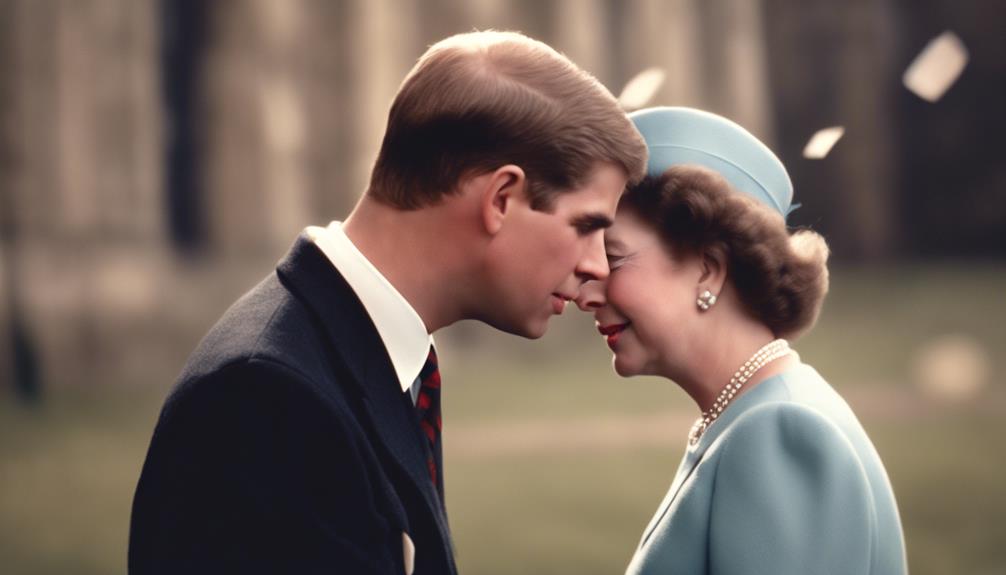
From his early years, Prince Andrew shared special bonding moments with Queen Elizabeth, showcasing a unique mother-son connection that endured. Their shared laughter and straightforward interactions laid the foundation for a relationship that royal experts believe to be the Queen's favorite.
Memories of their time together, especially during Andrew's upbringing closer to Windsor Castle, are a proof of the special bond they share.
Early Mother-Son Connection
In their early years, Prince Andrew and Queen Elizabeth shared a close and special bond, characterized by their mutual understanding and sense of humor. Queen Elizabeth found Andrew to be straightforward and someone who could make her laugh, fostering a unique connection between them.
This mother-son relationship was pivotal in Andrew's upbringing, shaping his views on family dynamics and royal relationships. Being educated nearer to Windsor Castle alongside his brother Edward allowed the Queen to be more involved in their lives, further strengthening their bond.
Andrew was often referred to as the 'spare she'd for herself once she'd produced the heir,' emphasizing the significance of his position in the royal family. The Queen's ability to spend quality time with Andrew and Edward compared to her older children highlighted a sense of royal favoritism towards them, deepening the intimacy of their relationship.
Shared Moments Together
During their shared moments together in Prince Andrew's childhood, the Queen and her son fostered a close and special bond marked by laughter and understanding. Prince Andrew, as the Queen's son and a member of the royal family, had a unique upbringing that allowed for ample quality time with his mother. Being described as the 'spare' the Queen kept for herself once she had produced the heir, Andrew held a significant place in her heart. Their shared moments were filled with genuine interactions, where Andrew's straightforward nature and ability to bring laughter to his mother's life played an important role. Educated closer to Windsor Castle alongside his brother Edward, the Queen could be more involved in their upbringing compared to her older children. This proximity enabled them to create lasting memories and a strong foundation for their relationship, making Andrew a favorite son in the Queen's eyes.
| Prince Andrew's Childhood Bond With the Queen | |
|---|---|
| Close and Special Bond | Marked by Laughter and Understanding |
Special Bonding Memories
Their shared moments in Prince Andrew's childhood laid the foundation for a special bond between him and Queen Elizabeth, marked by laughter and understanding. Queen Elizabeth formed a close relationship with Prince Andrew due to various factors during his upbringing:
- Time Spent Together: Prince Andrew's proximity to Windsor Castle allowed for more interactions with the Queen, fostering a deeper connection.
- Birth Circumstances: Being born during a settled period in the Queen's marriage to Prince Philip, Andrew was seen as the spare that belonged to her exclusively, enhancing their special bond.
- Personality Dynamics: The Queen found Andrew's straightforward nature and ability to bring laughter into their interactions endearing, solidifying their close relationship.
These aspects of their relationship during Andrew's childhood not only shaped a unique bond between the Queen and her 'favorite son' but also laid the groundwork for their enduring connection over the years.
The Epstein Scandal Fallout
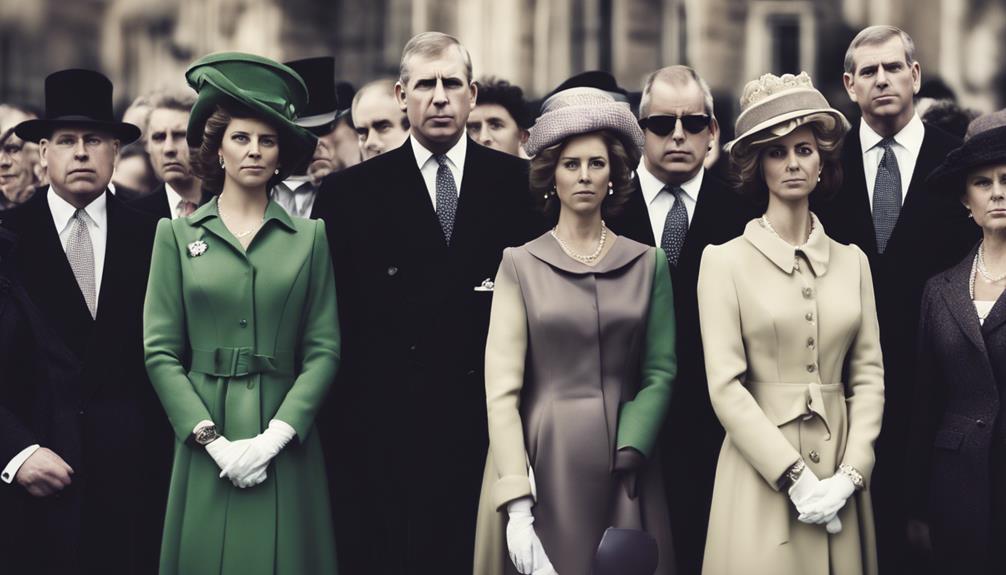
The fallout from the Epstein scandal greatly tarnished Prince Andrew's reputation, leading to public backlash and legal battles. Allegations of inappropriate behavior at Epstein's properties damaged Prince Andrew's standing within the royal family. His association with Epstein resulted in a considerable decline in public image and trust. The prince faced severe criticism for his ties to the convicted sex offender, Jeffrey Epstein. This scrutiny led to Andrew stepping back from his royal duties and facing consequences in both personal and professional spheres.
To gain a better understanding of the impact of the Epstein scandal fallout on Prince Andrew, let's look at the repercussions in the table below:
| Fallout Consequences | Details |
|---|---|
| Public Image | Markedly tarnished due to association with Epstein |
| Legal Battles | Faced lawsuits and allegations regarding sexual misconduct |
| Resignation from Duties | Stepped back from royal responsibilities |
Stripped of Titles and Affiliations

Prince Andrew's fall from grace culminated in the stripping of his titles and military affiliations by Queen Elizabeth following the Epstein scandal. This significant action by the Queen marked a turning point in Prince Andrew's public standing.
- Royal Titles Removed: The removal of Prince Andrew's royal titles was a direct consequence of his association with the Epstein scandal and the subsequent legal proceedings involving Ghislaine Maxwell.
- Military Affiliations Revoked: Along with his titles, Prince Andrew was also stripped of his military affiliations, further isolating him from his previous roles and responsibilities within the armed forces.
- Consultation with Family: Queen Elizabeth sought counsel from Prince Charles and Prince William before making the decision to strip Prince Andrew of his titles and military connections, highlighting the gravity of the situation within the royal family.
Andrew's Ongoing Public Image Crisis
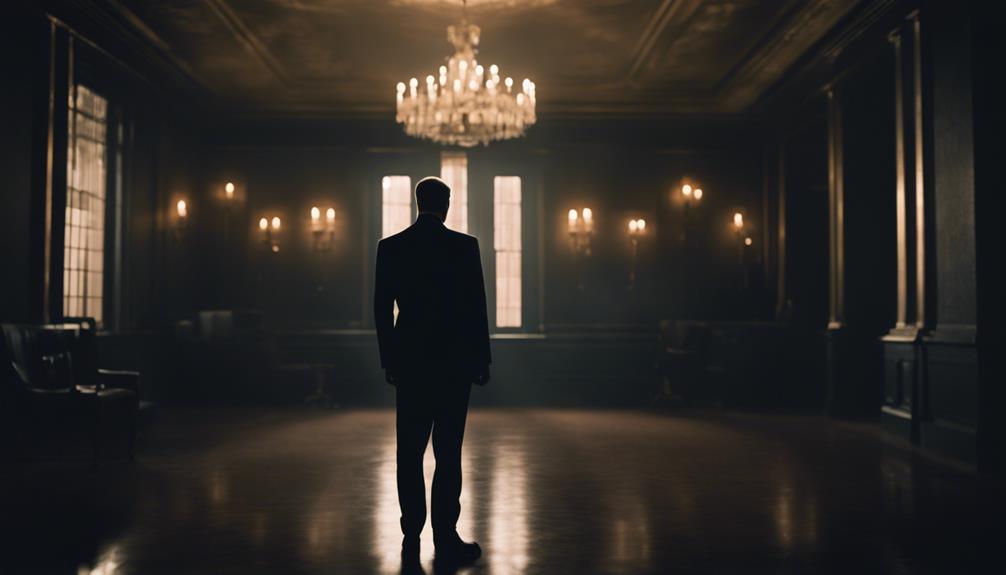
Amidst his association with Jeffrey Epstein and Ghislaine Maxwell, Prince Andrew finds himself embroiled in an ongoing public image crisis. The allegations of sexual misconduct and his controversial interactions with Epstein have severely damaged Andrew's reputation.
Calls for his accountability and removal from royal duties have escalated due to the scandal surrounding him. As a consequence of his tarnished image, Prince Andrew has been excluded from public royal events and faced significant public backlash.
The fallout from the Epstein scandal hasn't only cast a shadow over Andrew's standing within the royal family but has also negatively impacted his public perception. The ongoing scrutiny and public outrage surrounding Prince Andrew's involvement with Epstein and Maxwell continue to pose challenges for his role within the royal family and his reputation as a public figure.
Speculation on Future Royal Events
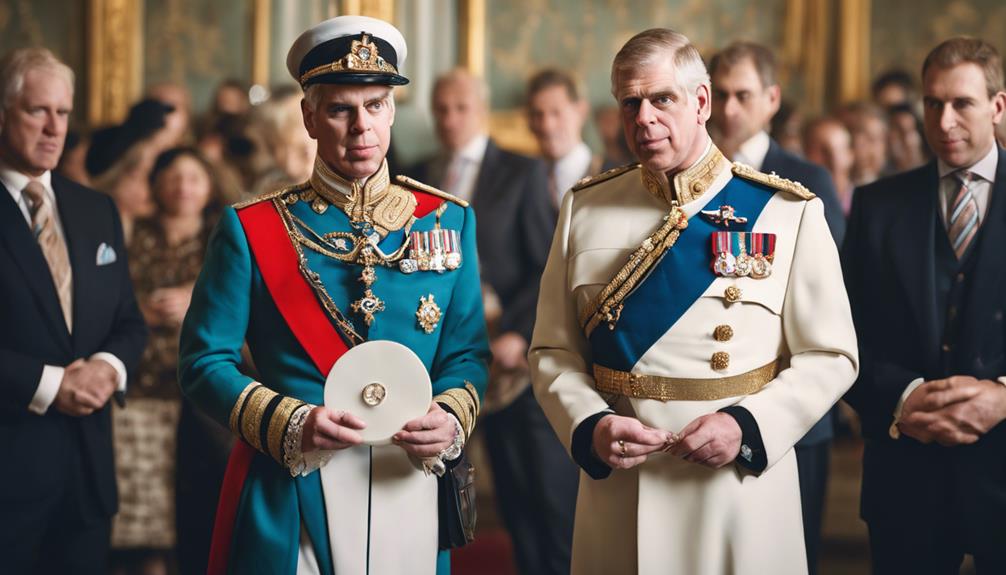
Speculation looms over how Prince Andrew's trial outcome will impact his presence at future royal events, causing palpable unease within the Palace. The Queen's decision to strip Andrew of his titles signifies a notable shift in the royal family dynamics, raising concerns about his involvement in upcoming events.
There's a prevailing sense of nervousness surrounding Andrew's potential impact on the forthcoming Platinum Jubilee celebrations, with expectations that he'll be excluded and remain invisible during the festivities due to the scandal fallout. Additionally, the key dates of Andrew's civil case may coincide with significant Platinum Jubilee celebrations, potentially overshadowing these important events and drawing attention away from the intended celebrations.
As the Palace grapples with these intricate considerations, the delicate balance between family matters and public perception remains a focal point of discussion within royal circles.
Frequently Asked Questions
Was Andrew Really the Queen's Favorite?
Prince Andrew's favored status in the Queen's eyes is rooted in their special bond, influenced by his birth during a harmonious period in her marriage.
Royal experts suggest that Andrew's distinct qualities, such as his courage and humor, have endeared him to the Queen, making him stand out among her children.
His service as a Royal Navy helicopter pilot and bravery in the Falklands War have further solidified his position as a favorite son within the royal family.
Who Was Prince Philip's Favourite Grandchild?
Prince Philip's favorite grandchild was reportedly Lady Louise Windsor, the daughter of Prince Edward and Sophie, Countess of Wessex. Her keen interest in carriage driving and the time spent together pursuing this passion created a special bond between them.
Lady Louise's maturity, poise, and dedication to royal duties also contributed to her standing out as a beloved grandchild to Prince Philip.
Conclusion
To sum up, despite the ongoing scandal surrounding Prince Andrew and his connections to Jeffrey Epstein, the Queen's apparent fondness for her disgraced son continues to perplex many.
While his charisma and wit may have endeared him to Her Majesty in his youth, the fallout from the Epstein scandal has tarnished his reputation and led to a stripping of titles and affiliations.
As speculation swirls about Andrew's future in the royal family, only time will tell how this saga will unfold.
Remember, 'blood is thicker than water.'
